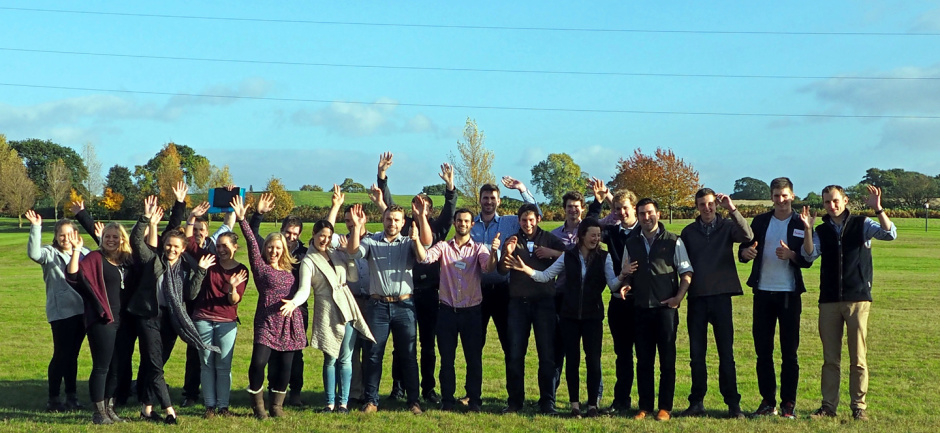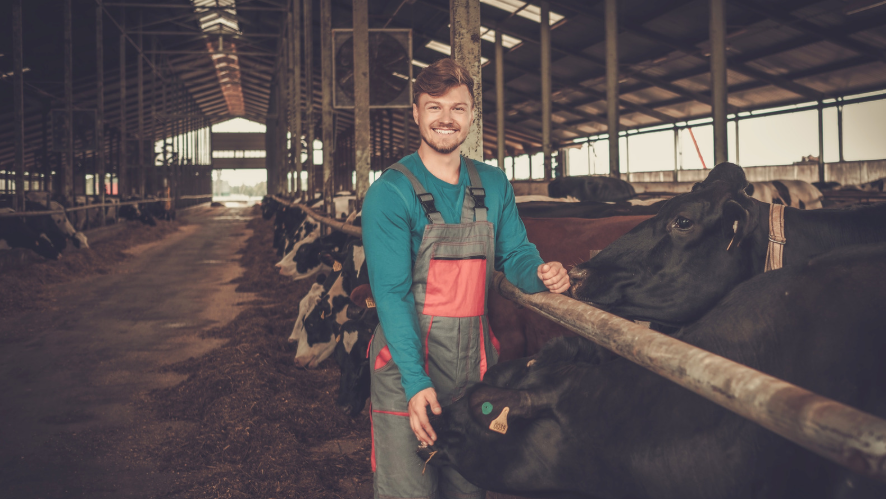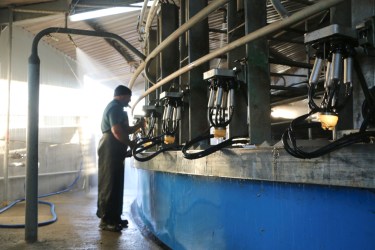By Neil Adams
Farming demands breadth. To do the job well, a farmer has to master the skills of a vet, a botanist, a mechanic, an accountant and an IT expert. Normally all at once. It’s a lot and is not eased by the traditional structure of British farming.
The succession strategy typically encourages conservatism, taking a long-term view and avoiding excessive risk so land can safely be passed down the generations. It requires a preparedness to try something new and to challenge the status quo. Getting the balance between conservatism and entrepreneurship as well as maintaining family harmony is never going to be easy. It demands an ability to learn, adapt and be open to change, a demand that sits heavily on the shoulders of the next generation of farmers.
Battling problems on and off the farm, from changing consumer habits to weather extremities, these farmers need to hone more competencies than most people in their careers. While there are some incredible opportunities and knowledge available to the generation of farmers forging a successful career in a somewhat challenging industry, it also requires support within. Both the individual and their predecessor have a responsibility to create the foundations for progression. There is a need to develop new perspectives and skills: what’s in the past won’t necessarily work in the future. Success is a mindset and it requires enthusiasm, commitment and determination.
There are four key areas in which having this mindset and an urge to progress is essential.
Don’t break the family bonds when planning succession
While those running a family farm business see a solid succession plan as the solution to any future movements, it is extremely difficult to get such structures in place. The process often involves grandparents, parents and siblings, as well as people who marry into the family. Death, divorce and debt can also play havoc with the best-laid plans. It is never as simple as it first sounds; families need to be prepared for new obstacles, unexpected events and an evolving industry.
It is about having the best methods of communication in place, an awareness of what the possibilities and preventions could be, and a brilliant support network. For the current generation, they’ll feel safe in the knowledge that their business is going to be smoothly handed over to the right person and for the successor, they’ll be able to thrive in an established and happy business.
Look at the wider picture
While it’s true that UK agriculture faces a huge amount of uncertainty there are actions farmers can take to increase productivity and efficiency. We have entered a new phase of food production where animal welfare and environmental sustainability are changing the rules of the game. So, agriculture today requires a change of perspective and those working in the industry, both present and future, have a duty to consider their business and how they can create certainty and growth.
Keeping abreast of the challenges facing a modern world is the first step. It is about having valuable insight into legislation, finance and the agri-food supply chain. Even forging new partnerships to strengthen the position of the business. Yes, British agriculture is changing rapidly, but that does not necessarily have to be a bad thing.
The farmers of today should already be making headway and investing in robust relationships across the supply chain and wider industry. However, as the world continues to evolve it is the next generation who will find value in staying ahead of the curb and investing in what matters.
It’s time to start growing people
The present and the future demand strong, capable leaders. Leadership is the one constant that will need to remain as we welcome the farmers and agriculturalists of tomorrow. Just like crops, people need to be nurtured so they can grow. This responsibility often sits with the farm owner and one that should be passed down to the successor.
Even if it’s a very small farm, with a few people to manage, the ability to be a successful manager is extremely important. Progression starts at the top: it is the leader’s duty to focus on growth. If you fail to see the value in education and development, you’ll see no form of change.
Employees are a rich resource and are critical to the success of any business. A priority for both those taking and handing over a farm, is to build a business strategy that not only ensures the success of their crop and livestock but of their team as well. After all, how do you expect a business to flourish if your employees don’t have the opportunity to grow?
Supporting the farmers of the future
Farming is a high-pressure occupation and one that faces unprecedented challenges and changes. For those successors who are faced with a new responsibility of leadership and power, it is extremely daunting. This tends to be heightened by the often lonely environment in which they find themselves working in.
For the new generation of farmers, there is huge value in building a strong network of friends and mentors. Having moral and practical support will put them in great stead when embarking on this exciting, but slightly nerve-wracking journey. Not only that, the entire network of present and past farmers can work collectively to create an industry that will excel way into the future.
So, what opportunities are available for the next generation?

There are plenty of initiatives out there to help young farmers to shape the future of farming. Support is easily accessible for all those wishing to develop personal skills and industry knowledge. One notable programme is the Tesco Future Farmer Foundation, which helps young individuals to realise their agricultural ambitions. Opened to those aged 20-35, the aim is to help those looking to take on the family business or pursue a new rural enterprise.
Other opportunities include, the NFU Student & Young Farmer Ambassador Programme, McDonald’s Progressive Young Farmer, Nuffield Farming Scholarships Trusts, our very own Dairy Management Academy, and Farmer’s Weekly Farmers Apprentice.
Succeeding in a market full of change can be quite a frightening prospect, but there is no reason why it should be. These companies want to help and see a bright future for farming. Now is the time to realise this, get involved, take risks and try something new.








